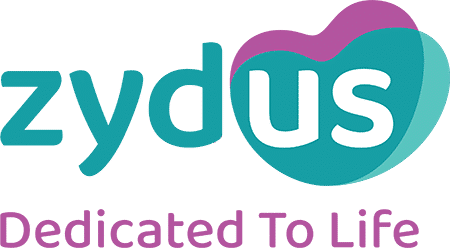预约演示
更新于:2025-05-07
SARS-CoV-2 vaccine (Zydus)
DNA新冠肺炎疫苗
更新于:2025-05-07
概要
基本信息
药物类型 DNA疫苗、预防性疫苗 |
别名 DNA plasmid vaccine (COVID-19)、SARS-CoV-2 vaccine (COVID-19), Zydus-Cadila |
作用方式 调节剂 |
作用机制 SARS-CoV-2 S protein调节剂(冠状病毒刺突糖蛋白调节剂) |
在研适应症 |
非在研适应症- |
非在研机构- |
权益机构- |
最高研发阶段批准上市 |
首次获批日期 印度 (2021-08-20), |
最高研发阶段(中国)- |
特殊审评紧急使用授权 (印度) |
登录后查看时间轴
关联
2
项与 DNA新冠肺炎疫苗 相关的临床试验CTRI/2022/06/043365
A prospective, randomized, open label, activecontrolled, multicenter, phase III clinical study toevaluate the immunogenicity and safety of singlebooster dose of ZyCoV-D of M/s ZydusLifesciences Limited in adult subjects alreadyvaccinated with 2 doses of Covaxin or Covishield
开始日期2022-06-23 |
申办/合作机构 |
PACTR202009737295685
A Randomized, Double-Blind Phase 1 Trial to Evaluate the Safety and Immunogenicity ofPriming with Env-C Plasmid DNA Vaccine Alone, with Different Adjuvants, or with anAdjuvanted HIV Env gp145 C.6980 Protein Vaccine and Boosting with the AdjuvantedHIV Env gp145 C.6980 Protein Vaccine with or without the Env-C Plasmid DNA Vaccinein Healthy HIV Uninfected Adults in Kenya
开始日期2020-11-27 |
申办/合作机构- |
100 项与 DNA新冠肺炎疫苗 相关的临床结果
登录后查看更多信息
100 项与 DNA新冠肺炎疫苗 相关的转化医学
登录后查看更多信息
100 项与 DNA新冠肺炎疫苗 相关的专利(医药)
登录后查看更多信息
455
项与 DNA新冠肺炎疫苗 相关的文献(医药)2025-05-01·AIDS and Behavior
Mapping Vaccination Mindsets among UK Residents of Black Ethnicities with HIV: Lessons from COVID-19
Article
作者: Horne, Rob ; Tariq, Shema ; Ottaway, Zoe ; Fox, Julie ; Moon, Zoe ; Hamzah, Lisa ; Campbell, Lucy ; Burns, Fiona ; Post, Frank A ; Schoeman, Sarah ; Sally, Deirdre ; Clarke, Amanda ; Ustianowski, Andrew
2025-05-01·The Lancet Infectious Diseases
Interim analysis of SARS-CoV-2 vaccine NVX-CoV2601 as a heterologous booster dose
Article
作者: Yadav, Pragya D ; Patil, Deepak Y
2025-04-01·Vaccine
SARS-CoV-2 conjugate vaccine elicits robust immune responses that can protect against evolving variants.
Article
作者: Chellappan, Gowri ; Durocher, Yves ; Carroll, Melanie ; Kapre, Subhash V ; Datta, Anup ; McCluskie, Michael J ; Rojas, Leonardo V ; Karengil, Geetha ; Olave, Ivan A ; Whalen, Mary M ; Karandish, Fataneh ; Langston, John W ; Tran, Anh ; Fall, Brent M ; Fox, Heather B
19
项与 DNA新冠肺炎疫苗 相关的新闻(医药)2025-01-30
一、核酸疫苗的科学基础
核酸疫苗的核心是利用基因编码技术,将肿瘤特异性抗原的遗传信息传递给人体细胞,激活免疫系统精准攻击癌细胞。与传统疫苗(如灭活病毒或重组蛋白疫苗)不同,核酸疫苗不需要体外培养抗原,而是利用人体细胞直接生产抗原,模拟自然感染过程,触发更强的免疫反应。1. DNA疫苗的工作原理
递送与表达:DNA疫苗以质粒形式递送(质粒是一种环状DNA分子),进入细胞核后,利用宿主细胞的转录机制生成mRNA,再翻译为抗原蛋白(图1)。
图示:DNA疫苗需突破细胞膜、核膜双重屏障,依赖宿主转录机制。
免疫激活路径:抗原蛋白通过蛋白酶体降解为肽段,与MHC I类分子结合后呈递至细胞表面,激活CD8+ T细胞(杀伤性T细胞),直接摧毁癌细胞。分泌型抗原还可通过MHC II类分子激活CD4+ T细胞(辅助T细胞),增强抗体产生。2. mRNA疫苗的快速响应机制
绕过细胞核:mRNA疫苗无需进入细胞核,直接在细胞质中翻译成抗原蛋白,省去转录步骤,速度更快(图2)。
图示:mRNA疫苗的简化路径使其开发周期短至数周。
天然佐剂效应:mRNA中的未修饰核苷酸可激活细胞内的TLR7/8受体,释放干扰素等信号分子,增强树突状细胞成熟和抗原呈递。
二、核酸疫苗的设计优化:从实验室到临床的关键突破
1. DNA疫苗的三大改进方向(1)质粒设计优化
启动子选择:强效启动子(如CMV)确保高表达,组织特异性启动子(如前列腺特异性抗原PSA)减少脱靶效应。案例:pTVG-HP疫苗使用CMV启动子驱动PAP抗原表达,用于前列腺癌治疗。
多抗原串联:单质粒编码多个抗原(如HPV的E6/E7蛋白),覆盖肿瘤异质性。案例:VGX-3100疫苗靶向HPV16/18的E6/E7基因,治疗宫颈癌前病变。
免疫佐剂整合:添加CpG基序(激活TLR9)或细胞因子基因(如GM-CSF),增强免疫应答。数据:含CpG的DNA疫苗在小鼠模型中抗体滴度提升10倍(Science, 2018)。(2)递送技术革新
电穿孔技术:通过短暂高压电脉冲打开细胞膜,提升DNA递送效率。设备:Inovio的CELLECTRA®系统,脉冲参数(电压、时长)可针对不同组织优化。临床数据:电穿孔使DNA疫苗免疫原性提升100倍(NCT03600350试验)。
脂质纳米颗粒(LNP):可离子化脂质(如DLin-MC3-DMA)在酸性条件下带正电,封装DNA;进入细胞后释放。案例:ZyCoV-D(COVID-19 DNA疫苗)使用LNP递送,有效性达67%。(3)联合疗法增效
免疫检查点抑制剂:PD-1/PD-L1抗体逆转T细胞耗竭,与DNA疫苗协同增效。案例:pTVG-HP联合PD-1抑制剂,客观缓解率(ORR)从12%提升至28%。
化疗/放疗:释放肿瘤抗原,增强疫苗效果。案例:WOKVAC疫苗联合紫杉醇,乳腺癌患者T细胞浸润增加3倍。2. mRNA疫苗的四大创新(1)结构工程:从稳定性到翻译效率
5'帽修饰:CleanCap®技术合成天然三磷酸帽(m7GpppN),提升翻译效率。对比:未加帽mRNA翻译效率下降90%(Nature, 2020)。
密码子优化:替换低频密码子(如CTA→CTG),匹配宿主tRNA库。案例:Moderna的mRNA-4157优化后抗原表达量提升50%。
UTR设计:借用高表达基因(如β-珠蛋白)的UTR序列,延长mRNA半衰期。数据:优化UTR使mRNA稳定性从6小时延长至72小时(Cell, 2021)。(2)递送系统:从肝靶向到肿瘤特异性
LNP配方演进:
第一代:DLin-MC3-DMA(Onpattro®),肝靶向性强,用于遗传病治疗。
第二代:SM-102(Moderna COVID-19疫苗),肺和肿瘤靶向性提升。
第三代:可降解脂质(如LP01),降低肝毒性(临床前数据)。
靶向修饰策略:
抗体偶联:抗EGFR抗体-LNP靶向实体瘤(小鼠模型显示肿瘤mRNA表达量提升10倍)。
电荷调控:阳离子脂质体靶向带负电荷的肿瘤血管。(3)个性化新抗原疫苗
设计流程:肿瘤测序→新抗原预测→mRNA合成→LNP封装→个体化接种。案例:BioNTech的iNeST平台,单疫苗编码20种新抗原,覆盖90%肿瘤克隆。
临床突破:Moderna的mRNA-4157针对34种新抗原,III期试验中黑色素瘤复发风险降低44%。(4)通用型疫苗开发
共享新抗原库:通过AI预测高频突变(如KRAS G12D、TP53 R175H),覆盖多癌种。案例:Gritstone的SLATE疫苗靶向20种公共新抗原,30%实体瘤患者适用。三、临床进展:从早期试验到III期突破1. DNA疫苗的里程碑案例(1)前列腺癌:pTVG-HP的十年征程
机制:靶向前列腺酸性磷酸酶(PAP),激活CD8+ T细胞。
II期试验(NCT01341652):
联合GM-CSF,62%患者产生PAP特异性T细胞。
中位无进展生存期(PFS)延长6个月(18 vs 12个月)。
联合PD-1抑制剂(NCT04090528):
客观缓解率(ORR)达28%,显著高于单药(12%)。(2)宫颈癌:VGX-3100的非手术革命
III期REVEAL试验:
入组193例HPV16/18阳性宫颈高级别鳞状上皮内病变(HSIL)。
结果:37%患者病灶完全消退(vs 9%安慰剂组),无需子宫切除。
优势:避免手术创伤,保留生育功能。
2. mRNA疫苗的临床突破(1)黑色素瘤:mRNA-4157的突破
KEYNOTE-942试验设计:
157例术后高危患者,随机接受mRNA-4157 + Keytruda或单药Keytruda。
终点:无复发生存期(RFS)。
结果:
联合组18个月RFS率82%(vs 64%)。
复发风险降低44%(HR=0.56)。
意义:首个获FDA“突破性疗法”认证的个性化mRNA疫苗。(2)胰腺癌:新抗原疫苗的曙光
个体化疫苗试验(NCT04161755):
16例可切除胰腺癌患者,疫苗联合化疗 + PD-1抑制剂。
结果:50%患者术后18个月无复发(历史对照<20%)。
机制:疫苗诱导的新抗原特异性T细胞浸润肿瘤微环境。
四、技术挑战与创新解决方案1. 递送效率的瓶颈(1)DNA疫苗的穿透难题
细胞核屏障:<5%的胞质DNA能进入核内。
解决方案:
核定位信号(NLS)肽段融合:SV40大T抗原NLS提升核转运效率。
微针阵列:经皮递送绕过肌肉屏障,直接靶向皮肤DC。(2)mRNA的肝靶向偏好
问题:LNP天然富集肝脏,降低肿瘤抗原表达。
策略:
电荷调控:中性LNP(如Acuitas ALC-0315)减少肝摄取。
组织特异性配体:叶酸修饰靶向肺癌(叶酸受体高表达)。2. 稳定性的现实困境(1)mRNA的热稳定性突破
冻干技术:CureVac的CVnCoV疫苗可在5°C稳定3个月。
核苷修饰:1-甲基假尿苷(m1Ψ)减少水解,半衰期延长至7天(37°C)。(2)DNA疫苗的长期储存
冻干制剂:Inovio的INO-4800(COVID-19疫苗)室温稳定1年。
超螺旋质粒优化:去除开环DNA,提升稳定性(>90%超螺旋率)。3. 肿瘤免疫抑制微环境(1)髓系抑制细胞(MDSC)的干扰
机制:MDSC分泌IL-10和TGF-β,抑制T细胞功能。
对策:
联合CSF1R抑制剂:阻断MDSC招募(临床前模型显示T细胞活性恢复70%)。
疫苗编码CD40L:激活DC,逆转免疫抑制。(2)T细胞耗竭
表观遗传重编程:DNMT抑制剂(地西他滨)恢复T细胞效应基因(如IFN-γ)表达。
代谢调控:补充谷氨酰胺增强T细胞线粒体功能。五、未来方向:从技术创新到全球可及1. 下一代技术平台(1)自扩增RNA(saRNA)
原理:借用甲病毒复制酶,低剂量(1/10常规mRNA)即可长效表达抗原。
案例:Arcturus的LUNAR-COV19疫苗,单剂免疫原性等同两剂Moderna。(2)环状RNA(circRNA)
优势:无5'/3'端,抗核酸酶降解,室温稳定。
进展:Orna Therapeutics的circRNA-LNP疫苗,临床前肿瘤模型显示持久免疫应答。2. 通用型疫苗开发(1)共享新抗原库
AI预测平台:
工具:NetMHCpan + DeepHLA预测高频新抗原(如KRAS G12D)。
案例:Gritstone的SLATE疫苗靶向20种公共新抗原,覆盖>30%实体瘤患者。(2)病毒载体整合
腺病毒载体:Oxford/AstraZeneca的ChAdOx1平台,携带多抗原表达盒。
优势:单次免疫激发强T细胞应答(如COVID-19疫苗)。3. 可及性与公平性(1)低成本生产技术
无细胞合成:酶法合成DNA(如Touchlight的doggybone DNA),避免细菌发酵。
连续流工艺:mRNA合成时间从7天缩短至8小时(如Synthego微流控系统)。(2)全球合作网络
WHO mRNA技术转移中心:南非、阿根廷等6国本地化生产mRNA疫苗。
开放专利池:MPP(药品专利池)授权中低收入国家生产COVID-19疫苗技术。六、总结:癌症治疗的新纪元
核酸疫苗通过基因编码的精准性,正在重塑癌症治疗格局。尽管面临递送效率、稳定性和成本挑战,但随着技术创新(如LNP优化、AI设计)和全球合作推进,未来十年或将实现“一针定制,终身防癌”的愿景。从实验室到病床,这场基因驱动的抗癌革命,终将让癌症从“绝症”变为可管理的慢性病。
识别微信二维码,添加生物制品圈小编,符合条件者即可加入
生物制品微信群!
请注明:姓名+研究方向!
版
权
声
明
本公众号所有转载文章系出于传递更多信息之目的,且明确注明来源和作者,不希望被转载的媒体或个人可与我们联系(cbplib@163.com),我们将立即进行删除处理。所有文章仅代表作者观,不代表本站立。
疫苗信使RNA
2024-11-13
摘要:核酸技术彻底改变了疫苗开发,使得RNA和DNA疫苗的设计和生产能够快速进行,以预防和治疗疾病。针对COVID-19的mRNA和质粒DNA疫苗的成功部署进一步验证了这项技术。目前,由于其更高的有效性,mRNA平台占据主导地位,而DNA平台正在快速进化,因为它拥有独特的优势,有可能克服与mRNA平台相关的问题。为了帮助理解这两种疫苗平台的最新表现,并认识到它们在未来的临床潜力,本综述比较了文献中目前已知的mRNA和DNA疫苗的优势和缺点,包括开发时间线、财务成本、分发便利性、有效性、安全性和产品的监管批准。此外,综述还讨论了正在进行的临床试验、改进策略,以及RNA和DNA平台的替代疫苗设计。
1.引言
核酸疫苗因其在临床试验中对多种疾病(包括癌症和SARS-CoV2等病毒感染)的治疗或预防显示出有希望的结果,最近受到了极大关注。与传统的基于蛋白质或病毒的疫苗相比,核酸疫苗拥有众多优势,这些优势已经并将继续使它们成为疾病控制和治疗最有希望的平台。与基于蛋白质和病毒的疫苗生产所需的在孵化鸡蛋或培养细胞中的漫长过程不同,核酸疫苗的开发和制造简单快捷,并且可以迅速扩大生产规模,特别是在应对新兴大流行病时。核酸疫苗的生产过程中不包含传染性病原体,这也消除了不完全灭活病毒或纯化的问题,并确保了它们在人类中的安全性。此外,核酸疫苗的基因序列可以轻松修改以针对特定病原体和疾病,使它们能够适应新兴传染病和快速演变的病原体,或者适应癌症等异质性疾病中的个性化疫苗。除了安全性和生产便利性,核酸疫苗能够通过MHC I类和II类分子呈现抗原,并诱导宿主免疫系统的细胞和体液反应,而蛋白质疫苗在诱导CD8+细胞毒性T淋巴细胞反应方面效率较低,激活这些细胞需要MHC I分子呈现抗原。同样重要的是,核酸疫苗避免了当前基于鸡蛋的疫苗中病毒适应在鸡蛋中复制的问题,这可能导致关键抗原位点的变化,干扰保护性免疫反应。核酸疫苗的另一个优势是,与基于蛋白质或病毒的传统疫苗相比,它们在最终溶液产品中的添加剂更少。传统疫苗的溶液通常含有MF59、铝盐和CpG等佐剂。Saponin作为佐剂被添加到Novavax(一种针对COVID-19的蛋白质亚单位疫苗)的溶液中。Thimerosal有时被用作传统疫苗的防腐剂,以防止细菌或真菌污染。尽管没有证据表明疫苗中使用Thimerosal是有害的,但公众担心Thimerosal可能导致儿童自闭症等神经系统疾病。相比之下,Moderna或Pfizer的COVID-19 mRNA疫苗的溶液中不包含额外的佐剂或防腐剂。用于mRNA传递的脂质纳米颗粒(LNPs)也作为疫苗佐剂。此外,疫苗溶液通常含有稳定剂。明胶是病毒疫苗溶液中常用的稳定剂(例如,Flumist®用于流感,M-M-R® II用于麻疹、腮腺炎和风疹,Varivax®用于水痘)以保护病毒在制造和运输过程中免受冻干或解冻的损害。接种疫苗的患者血液中可能产生抗明胶抗体,这可能导致严重的过敏反应。Polysorbate 80是另一种用于基于蛋白质和病毒的疫苗(例如,HPV疫苗、Novavax和J&J/Janssen COVID-19疫苗)溶液中的稳定剂,也可能在一些患者中引起过敏反应。相比之下,Moderna和Pfizer的COVID-19 mRNA疫苗使用蔗糖作为mRNA疫苗溶液中的稳定剂,没有数据显示蔗糖的存在与任何疫苗相关的不良反应有关。然而,需要注意的是,mRNA疫苗含有聚乙二醇(PEG)在脂质纳米颗粒中用于稳定脂质结构,这被认为是引起mRNA疫苗在临床上观察到的严重过敏反应的潜在因素之一。为了解决这个问题,已经开发了新的聚合物,如聚(寡(乙二醇)甲基醚甲基丙烯酸酯)(POEGMA)作为PEG的替代品,可能稳定LNPs并减少免疫原性(见第2.4.2节)。
目前,两种主要类型的核酸疫苗在研究实验室和临床上越来越受到关注,分别是DNA疫苗和RNA疫苗,它们分别以DNA和mRNA作为主要疫苗成分。RNA和DNA疫苗都通过使用宿主自身的蛋白质合成机制来产生“抗原”,这些抗原是病毒或致病细胞表面可以被宿主免疫系统识别并触发免疫原特异性免疫反应的免疫原性蛋白。这个过程模仿了自然感染而不引起疾病,允许身体以受控的方式发展免疫力。DNA疫苗通常通过将编码抗原的基因片段克隆到一个圆形载体中(如质粒和微环DNA)来创建,这些载体可以在哺乳动物细胞中高效表达,并通过肌肉内和皮内注射等途径将修饰后的DNA构建物传递给宿主。宿主细胞,例如肌肉内传递中的肌细胞,将摄取DNA,读取其序列中的遗传信息,并合成编码的抗原(图1)。RNA疫苗可以通过mRNA和其他RNA载体(如自复制RNA和环状RNA(见第3.3节))来创建。在这种情况下,RNA而不是DNA负责携带生产抗原所需的遗传信息。在抗原呈递细胞(APCs)如树突状细胞(DC)和巨噬细胞的帮助下,产生的抗原被宿主免疫系统识别为外来物,并将对其产生免疫反应。对于抗病毒疫苗,将产生能够识别和中和病毒的抗体。对于所有疫苗,T细胞也被激活以帮助破坏感染的细胞或带有目标抗原的细胞。
RNA和DNA疫苗都需要被传递到细胞中以表达抗原。单独的裸DNA已在许多临床试验中作为疫苗使用,并被证明是有用的,尽管需要进一步提高裸DNA疫苗的传递效率和因此的免疫原性,以扩大其应用。与通常直接注射到宿主中的DNA疫苗不同,RNA疫苗(例如mRNA)通常被包裹在脂质纳米颗粒(LNPs)中,这有助于保护RNA并促进其进入细胞和内质网逃逸。这些LNPs通常是免疫原性的,并表现出对RNA疫苗的重要佐剂作用。在被注射部位附近的细胞摄取后,RNA从LNPs中释放出来,进入细胞的细胞质中进行后续的翻译和呈递过程,这些过程与DNA疫苗相似(图1)。
图1. mRNA和DNA疫苗的作用途径。(1)mRNA和DNA疫苗可以通过肌肉注射或其他方法给药,之后疫苗将被宿主的体细胞内化(2)。mRNA和DNA疫苗编码抗原的遗传信息,并依赖宿主自身的蛋白质合成机制来产生抗原。mRNA需要在进入宿主细胞后从其递送载体中释放出来,例如LNP,然后直接翻译成蛋白质抗原。质粒DNA疫苗需要被运送到细胞核中,DNA中的遗传信息才能被读取并转录成mRNA。之后,mRNA从细胞核中出来并翻译成编码的蛋白质抗原。(3)合成的抗原被转移到抗原呈递细胞(APCs)中,这些细胞迁移到次级淋巴器官,通过MHC分子与T细胞受体(TCR)之间的相互作用以及共刺激分子之间的相互作用(例如APC表面的CD86和T细胞上的CD28等受体)来(4)激活T细胞。激活的CD4+ T细胞分泌促炎细胞因子以激活负责(5)建立针对抗原的体液免疫反应的B细胞。
RNA和DNA疫苗平台在包括寨卡病毒、流感、狂犬病等疾病的临床前和临床研究中都显示出了有希望的结果。正在进行的DNA和RNA疫苗的大量临床试验强调了它们在未来医学中的重要角色。然而,这两种疫苗平台也有限制,这些限制目前阻碍了它们充分发挥潜力,并在临床试验中造成了许多失败。由于这两种疫苗在疫苗接种中相对较新,缺乏来自已完成的后期临床试验的足够支持数据,而且目前可用的长期安全性和有效性数据非常有限,因此很难判断哪一种在临床使用中具有更大的潜力。此外,这两种方法都在不断地被开发和优化,这增加了未来DNA和RNA疫苗之间胜者的不确定性。
迄今为止,大多数数据都是通过质粒DNA和基于mRNA的疫苗产生的。因此,本综述聚焦于讨论和比较当前质粒DNA和mRNA疫苗的成就和正在进行的发展,尽管也提到了其他平台。目的是提供洞见,了解它们在预防和治疗疾病方面可能产生重大影响的潜力。
2.mRNA和DNA疫苗的优势和考虑因素
mRNA疫苗高效、安全且多功能。最近,由于在COVID-19大流行期间成功应用于减少可能导致患者住院或死亡的严重病例,它们成为了热门话题。这一成功也减弱了对DNA疫苗的热情。
尽管目前产生的热情较少,DNA疫苗有一些独特的优势,可能克服mRNA疫苗的局限性。它们在热稳定性上更强,保质期更长。因此,它们不需要冷链基础设施进行运输和储存,这降低了疫苗分发的成本,并允许在基础设施有限的地区获得疫苗。此外,DNA疫苗可以在细胞中提供比mRNA更持久的基因表达,这可能会延长对抗原的免疫反应。DNA疫苗更便宜且更容易扩大生产规模。此外,裸DNA疫苗可以直接交付,而不需要与生物材料(如LNPs)包装,这与mRNA疫苗相比进一步简化和降低了设计和制造过程的成本。没有包装材料中的炎症因子,DNA疫苗更安全,因为它们会引起较少的不良副作用。
此外,最近一项关于COVID-19疫苗的临床前研究表明,DNA和mRNA平台之间存在不同的免疫反应。DNA疫苗触发了更强的T细胞反应,而mRNA引发了更强的体液反应,这表明每个平台可能特别适合针对特定疾病。为了深入理解两种疫苗接种方法,我们从几个不同的方面系统比较了mRNA和DNA疫苗的优势和劣势:开发时间线和财务成本、储存和运输要求、剂量和保护效力、监管批准以及安全性和副作用。
2.1.开发时间线和财务成本
与mRNA和DNA疫苗的设计和生产相关的时间和财务成本取决于各种因素,如病原体类型、监管要求和全球需求。这两种疫苗平台有很多共同点。与传统的基于蛋白质和病毒的疫苗相比,它们的生产相对较快,因为它们的生产不需要使用受精鸡蛋或培养细胞。mRNA和DNA疫苗都需要一个类似的初始步骤,即确定正在开发的疫苗的抗原的基因序列(图2)。对于DNA疫苗,基因序列将被克隆到DNA载体中,如质粒DNA,并伴有选定的启动子和增强子以实现优化的转录。DNA载体首先在细菌中扩增,然后从细菌培养中收获。分离和纯化后,它们被重新溶解在水溶液中,准备用于给药。
图2. mRNA和DNA疫苗的生产。(左)生产mRNA-LNP疫苗的一种常见方法。(1)将目标抗原的遗传序列插入到一个环形DNA载体中。(2)然后在细菌中扩增环形DNA并分离出来。(3)线性化环形DNA模板后,遗传序列被(4)体外的噬菌体聚合酶转录成mRNA,并且(5)通过高性能液相色谱(HPLC)纯化mRNA转录本。(6)mRNA与脂质在微流体混合器中迅速混合,导致mRNA被脂质瞬间包裹并沉淀为自组装的纳米颗粒(mRNA-LNPs)。(7)通过透析或过滤纯化mRNA-LNP溶液,以去除非水溶剂和未包裹的mRNA。(8)纯化的mRNA疫苗产品在无菌瓶中包装,供使用前准备。(右)生产DNA疫苗的一种方法。(1)将目标抗原的遗传序列插入到质粒DNA载体中。(2)然后在细菌中扩增质粒DNA并分离出来。(3)通过HPLC纯化质粒DNA后,(4)得到的DNA疫苗产品在无菌瓶中包装,供使用前准备。
mRNA疫苗的设计需要相同的初始步骤,即基因序列鉴定。但是,mRNA疫苗的生产涉及更多的步骤,因为它依赖于双链线性DNA作为模板,如线性化的质粒DNA,其本身可以作为DNA疫苗。模板包含感兴趣的序列和通常来源于T3、T7或SP6噬菌体的DNA依赖性RNA聚合酶启动子。mRNA是通过体外转录(IVT)从模板产生的。通过在DNA模板的3′端包含或在IVT后通过酶反应,将聚(A)尾添加到mRNA转录本。由于mRNA分子不稳定,并且在宿主内给药后高度易受核酸酶降解,裸mRNA很少用作疫苗。相反,mRNA被包裹在纳米颗粒(NPs)中,如LNPs,以稳定mRNA,保护其免受降解,并促进其进入细胞。用于mRNA疫苗的LNPs,如针对COVID-19大流行的Comirnaty(辉瑞-BioNTech)和Spikevax(Moderna),通常包含4种不同类型的脂质:可电离阳离子脂质、中性脂质、胆固醇和聚乙二醇化脂质。脂质与纯化的mRNA在微流体混合器中迅速混合,形成mRNA-LNP复合物。经过透析或过滤以去除未复合的成分后,mRNA-LNP重新分散在通常含有磷酸二氢钾、磷酸二氢钠或Tris(三甲胺)(pH 7-8)的盐溶液中。NPs的设计和筛选是耗时的,因为已经开发了成千上万的NPs用于不同的目的,选择最佳的一种用于特定的mRNA疫苗取决于目标组织/器官和细胞类型、mRNA大小和序列、期望的佐剂作用以及可接受的炎症水平。通过传统实验筛选NP库是识别特定设置中最佳配方的常见方式,但可能成本高昂且耗时。随着机器学习和计算方法的最新进展,这一问题可以得到缓解,这些进展有潜力显著加快这一过程并降低成本。
除了NPs的设计和筛选,通常用于LNPs的材料,如可电离脂质,可能很昂贵。Moderna mRNA疫苗的脂质成本为每剂2.85美元。从2020年7月到2022年7月,美国政府花费了253亿美元购买辉瑞和Moderna COVID-19疫苗,平均每剂20.69美元。没有政府支持,美国那些无保险和保险不足的个人可能面临财务障碍。生活在低收入和中等收入国家的人的成本障碍将更高。mRNA疫苗的成本效益因此仍然是一个问题,需要解决。
由于不需要LNPs,DNA疫苗的开发和生产成本明显低于mRNA疫苗,但由于与临床前和临床试验以及政府法规相关的成本,仍然不特别便宜。在印度获批紧急使用的COVID-19 DNA疫苗ZyCov-D的报告价格为每剂3.57美元。
随着越来越多的mRNA和DNA疫苗进入临床试验和公共使用,预计它们的价格将下降,但也应该考虑大幅降低设计、制造和原材料成本的策略,特别是对于mRNA-LNP疫苗。
2.2.运输和储存要求
为了防止mRNA和LNPs的结构变化,mRNA疫苗必须在(超)低温下长期储存和运输。目前Moderna和辉瑞的COVID-19 mRNA疫苗分别需要在-15至-25°C和-60至-90°C之间冷冻储存。对于短期储存,Moderna mRNA COVID-19疫苗在室温下稳定长达12小时,在2-8°C下稳定长达30天;辉瑞-BioNTech mRNA COVID-19疫苗在室温下稳定长达2小时,在2-8°C下稳定长达5天。两种疫苗的温度要求差异的确切原因尚待确定。此外,已经表明,在25°C下储存7天的mRNA LNPs导致转基因表达比在-30°C下储存的减少90%以上。
关于mRNA疫苗在延长储存期间的稳定性以及LNPs中mRNA封装对疫苗稳定性的影响,公开可用的数据很少。保持mRNA疫苗在(超)低温下增加了储存和运输的成本,并限制了mRNA疫苗在全球所有地区或国家的可获得性。这可能导致疫苗获取的不平等,导致疫苗接种率和医疗结果的不均衡。解决这个问题的一个潜在解决方案是对mRNA-LNPs进行冻干,因为Muramatsu等人已经证明冻干的mRNA-LNPs可以在室温下保持物理化学稳定性长达12周,在4°C下超过24周,而不损害它们在小鼠中的免疫原性。Popowski等人也表明,冻干的mRNA疫苗干粉在室温下稳定一个月。在含有蔗糖的溶液中储存mRNA-LNP产品也可以提高其稳定性。为确保有效的全球分发,疫苗应具有足够长的保质期,理想情况下在冰箱可达到的温度(2-8°C)或以上。在这方面,DNA疫苗比mRNA疫苗更好,因为DNA的卓越热稳定性允许它们在4°C甚至环境温度下运输和储存,使它们成为控制资源有限的发展中国家和农村地区传染病传播最有希望的候选疫苗。例如,在印度获得紧急使用授权的COVID-19 DNA疫苗ZyCoV-D,可以在2-8°C下储存,并且在至少三个月内稳定在25°C,保留美国食品药品监督管理局(FDA)要求的所有规格。乙型肝炎的重组DNA疫苗(Engerix-B)可以在45°C下储存一周或在37°C下储存一个月。涉及138名健康成年人的临床研究结果表明,与在4°C的正常储存条件相比,这两种储存方式都没有改变疫苗诱导的保护性抗体滴度。DNA疫苗的显著热稳定性使得运输和储存变得容易,减轻了与冷链要求相关的挑战,并最小化了因冷链中断而导致的疫苗浪费风险。
2.3.剂量和保护效力
当前的DNA疫苗在临床试验中比mRNA疫苗具有更低的效力,并且需要更高的剂量来产生有效的免疫反应。对于初次接种COVID-19疫苗(附录表1),辉瑞的mRNA疫苗以两剂,每剂30微克的形式给予,Moderna mRNA疫苗包含两剂100微克的剂量;相比之下,ZyCoV-D被批准为三剂方案,每剂含有2毫克质粒DNA,分别是辉瑞和Moderna疫苗mRNA剂量的100倍和30倍。据报道,ZyCoV-D的两剂方案,每剂3毫克,在临床试验中产生了相当的保护,但低于6毫克的总剂量仍需验证有效的疫苗接种。
最初的单价Moderna和辉瑞mRNA疫苗在2020年的3期临床试验中对COVID-19的效力相似(附录表1),Moderna疫苗在预防COVID-19疾病方面的有效性为94.1%,在预防严重病例方面的有效性为100%,辉瑞疫苗在预防COVID-19方面的有效性为95%。然而,尽管使用了更高的剂量,ZyCoV-D的效力较低——在接种两剂后预防COVID-19的有效性为66.6%,在预防严重和中度病例方面的有效性为100%(附录表1)。值得注意的是,ZyCoV-D的3期临床试验发生在印度Delta株流行期间,这可能是单价DNA疫苗相对较低效力的直接原因。
两种疫苗平台之间在剂量和效力方面的巨大差异主要是由于DNA传递在启动抗原生产之前的细胞内障碍更大。无论注射途径如何,DNA疫苗都需要克服细胞膜和核膜的生理屏障,才能到达细胞转录机制。之后,从DNA转录的mRNA离开细胞核并在细胞质中进行翻译。相比之下,mRNA疫苗在被翻译成目标抗原之前不需要到达细胞核,LNP配方中的可电离阳离子脂质可以大大促进细胞表面的跨膜运输和细胞内mRNA的内质网逃逸。因此,开发策略以克服DNA疫苗传递的生理屏障对于提高其效力和减少所需剂量至关重要。
基于mRNA和DNA疫苗治疗癌症的临床数据也已经发表,尽管与COVID-19疫苗研究相比,涉及的患者数量较少。在针对多种自体癌症的1/2期试验(NCT03480152)中,包括肝细胞癌(HCC),编码新抗原的mRNA疫苗每两周肌肉注射一次,最多4剂,剂量为0.13毫克或0.39毫克。所有接种疫苗的患者(100%,2名患者中的2名在任何剂量水平)显示出循环抗原特异性T细胞的增加。然而,他们中没有人(在任何剂量水平)显示出对治疗的临床反应(客观肿瘤退缩)。
在完成的1期研究(NCT00199849)中,使用NY-ESO-1质粒DNA疫苗(pPJV7611)治疗表达NY-ESO-1或LAGE-1抗原的各种肿瘤患者,如非小细胞肺癌(NSCLC)。参与者在近距离的不同位置通过粒子介导的表皮传递接受pPJV7611。第一组参与者接受了4×1微克pPJV7611在4个不同位置的传递;第二组参与者接受了8×1微克pPJV7611在8个位置的传递;第三组参与者接受了2×4微克pPJV7611在2个不同位置和4个不同时间(第1、3、5和8天)的传递。治疗在4周和8周后重复。研究报告表明,在第一次疫苗治疗后13周,所有三个队列中对肿瘤反应的受试者数量为0(0.0%)。在多达13周内具有NY-ESO-1特异性CD4+T细胞免疫的受试者数量分别为第一队列3(100.0%),第二队列5(83.3%),第三队列7(100.0%)。在多达13周内具有NY-ESO-1特异性CD8+T细胞免疫的受试者数量分别为第一队列1(33.3%),第二队列0(0.0%),第三队列1(25.0%)。
这些研究中取得的有限效力可能归因于给予患者的质粒DNA或mRNA疫苗的低剂量以及缺乏与其他免疫治疗剂的联合使用;否则,在临床研究中观察到了有利的结果。在针对晚期HCC的1/2期试验(NCT04251117)中,一种编码多达40个新抗原的个性化治疗性癌症DNA疫苗(GNOS-PV02)与编码白介素-12(pIL12)的质粒共同配制,并以1毫克GNOS-PV02和0.34毫克pIL12的剂量每3周一次皮内注射给参与者,随后进行电穿孔。在前四次治疗中,参与者接受了1毫克GNOS-PV02和0.34毫克pIL12的剂量,随后每9周一次直至第二年结束,之后每12周一次直至第五年结束。此外,参与者每3周接受一次200毫克的PD-1抑制剂pembrolizumab治疗,为期2年。治疗结果很有希望,因为新抗原特异性T细胞反应率为86.4%(22名可评估患者中的19名),客观反应率为30.6%(36名患者中的11名),其中8.3%(36名患者中的3名)实现了完全反应。
在另一项1/2期研究(NCT03164772)中,NSCLC受试者要么接受Durvalumab(一种抗PD-L1抗体)和包含6个编码不同肿瘤相关抗原(MUC1、Survivin、NY-ESO-1、5 T4、MAGE-C2和MAGE-C1)成分的BI 1361849 mRNA疫苗的联合治疗(A组),要么接受Durvalumab、Tremelimumab(一种抗CTLA-4抗体)和BI 1361849 mRNA疫苗的联合治疗(B组)。BI 1361849 mRNA疫苗的每个成分分别以80微克的剂量给予两次。在研究期间,每位参与者共接受了12次mRNA皮内注射(总共960微克mRNA)。A组估计的中位无进展生存期为2个月,B组为1.8个月。在第8周无进展的受试者数量分别为A组11(47.8%)和B组11(32.4%)。这些数字在8周到第24周之间随时间单调下降。
2.4.不良事件和安全数据
2.4.1.常见观察到的不良事件
mRNA和DNA疫苗相关的不良事件(AEs)通常与注射外来物质有关,如核酸、水溶液和脂质纳米颗粒(LNPs),尽管在一些研究中,ZyCoV-D疫苗注射相关的AEs低发生率归因于使用无针皮内注射系统而非针头。大多数mRNA或DNA疫苗接种相关的AEs轻度至中度。大多数可用数据基于COVID-19疫苗的临床研究。比较两种平台COVID-19疫苗的表现,DNA疫苗在诱发和非诱发AEs的严重程度和发生率方面比mRNA疫苗展现出更好的安全档案。在mRNA-1273的3期临床试验(附录表2)中,接种组比安慰剂组更频繁地报告诱发AEs,第一剂后(87.8%对48%)和第二剂后(92.2%对42.8%)。并且局部和全身AEs的严重程度和发生率在第二剂后比第一剂后增加。在ZyCoV-D的3期临床试验(附录表2)中,接种组(4.49%)和安慰剂组(4.47%)之间诱发AEs的发生相似。中期分析还表明,疫苗作为加强剂对接受者来说耐受性良好,因为与第一剂相比,第三剂后AEs的频率没有增加,大多数报告的事件是在第一剂而不是第二剂或第三剂后。这与mRNA-1273试验的结果形成对比,表明重复接种会引发更强的诱发AEs。mRNA-1273和ZyCoV-D的非诱发AEs与相应的安慰剂组相似,但mRNA-1273的发生率高(23.9%)比ZyCoV-D试验(3.27%)。有趣的是,尽管ZyCoV-D使用的核酸剂量是mRNA-1273的30倍,但ZyCoV-D的AEs严重程度和发生率更低。这可能归因于mRNA-1273中使用的LNP在ZyCoV-D中不存在。然而,重要的是要注意,这两项临床试验由不同的科学家在不同的国家和人类群体中进行,这可能会使不同疫苗报告的AEs之间的比较复杂化。与ZyCoV-D类似,另一种DNA疫苗COVID-eVax在1期试验中显示出在第二次免疫后全身和局部诱发AEs的发生率比第一次后低。第一次后局部为35-87%,全身为40-50%,第二次后局部为20-55%,全身为30-45%,取决于疫苗剂量。这些发生率高于ZyCov-D,可能由于COVID-eVax使用了不同的给药程序:肌肉内针头注射后通过移动电脉冲发生器进行电穿孔,这些程序更具侵入性和炎症性。DNA疫苗作为加强剂比mRNA疫苗更易被耐受的原因尚不清楚,了解它们的分子机制对于设计更好的平台很重要。对于mRNA和DNA疫苗在预防除COVID-19以外的疾病方面的安全性数据也有一些,但不多。例如,一项mRNA疫苗已在临床试验中用于预防狂犬病。在10%的接受者中观察到3级全身AEs,这些被归因于mRNA疫苗的炎症特性。
2.4.2.其他安全问题
除了常见的AEs外,关于DNA疫苗的一个主要担忧是其可能被整合到受体细胞的基因组中,因为它们需要进入细胞核以表达抗原。已经进行了大量研究以确定DNA整合到人类染色体的风险,从而激活致癌基因或增加染色体不稳定性。这些研究的数据表明,这种风险低于由自发基因组突变引起的风险。人类临床试验研究进一步证实了DNA疫苗的安全性和耐受性,尽管仍需要更多的长期临床数据来完全解决这一安全问题。另一方面,mRNA疫苗在患者中相对安全,因为它们在宿主中的保留时间相对较短,mRNA不太可能进入细胞核。对于mRNA疫苗,超敏反应是一个主要问题。它们是由某些材料如非天然脂质的传递载体引起的。在一项临床前研究中,Ndeupen等人表明,一些已经过仔细表征并在临床前mRNA疫苗研究中广泛使用的商业LNPs具有高度炎症性,并导致动物中高死亡率(约80%)。还有临床证据表明,COVID-19的一些mRNA疫苗中的聚乙二醇(PEG)可以诱导血液中的抗PEG抗体,导致过敏反应。然而,报告的结果相互矛盾。Carreno等人的研究表明,BNT162b2接种患者的血清中未检测到PEG特异性抗体,并且过敏反应与mRNA-1273诱导的抗PEG抗体之间没有明显的相关性。此外,mRNA疫苗接种诱导的抗PEG抗体对疫苗效力的影响仍然未知。Kozma等人的一项研究表明,这些抗PEG抗体可能会降低疫苗效力,而Guerrini等人和Ju等人的其他研究表明,抗PEG抗体对mRNA疫苗产生的抗刺突中和抗体没有影响。因此,PEG对mRNA疫苗的潜在不良影响仍然是一个活跃的研究和辩论领域。需要更多的研究和监测数据来对这个问题得出明确结论。与此同时,已经开发了下一代PEG衍生物,如POEGMA,作为改善药物和基因传递的替代聚合物。这些聚合物具有与PEG相似的功能属性,但引起的抗PEG抗体较少。它们可能被用来稳定mRNA疫苗。mRNA和DNA疫苗的另一个潜在安全问题与反复接种可能产生的抗mRNA或DNA反应和诱导全身自身免疫疾病有关。但发表的研究有限,以解决这个问题。一项关于癌症DNA疫苗的1期临床试验报告称,在66名注册患者中,没有检测到抗双链DNA抗体或PBMCs中的质粒,并且报告称没有接受者出现自身免疫疾病的症状,但需要更大规模的临床研究的证据来完全解决这一问题。总体而言,迄今为止mRNA和DNA疫苗显示出良好的安全档案,并且由于安全问题而退出临床试验的疫苗候选者很少。有必要进行更多的研究和分析,以全面评估安全方面,为在行业和临床中建立更好的标准和法规。
2.5.临床使用的批准
由Zydus Cadila开发的ZyCoV-D获得了印度药品监管总局(DCGI)在2021年8月批准的紧急使用限制,迄今为止,它是唯一获得批准的DNA疫苗。它包含一个编码SARS-CoV-2的刺突(S)蛋白和免疫球蛋白E(IgE)信号肽的单一质粒DNA,以促进转染细胞的分泌。
康希诺(研究名称:BNT162b2)由辉瑞-BioNTech开发,于2020年12月获得美国FDA的紧急使用授权(EUA),适用于成人,并于2021年8月获得同一机构的批准,用于预防16岁及以上个体的COVID-19。斯皮克瓦克斯(研究名称:mRNA-1273)由Moderna开发,于2020年12月获得美国FDA的EUA,适用于18岁及以上个体。其在成人中的完全批准于2022年1月获得。斯皮克瓦克斯和康希诺及其后续加强疫苗的更详细的临床试验和批准历史在图3中说明。到目前为止,它们是唯一获批用于常规临床使用的mRNA疫苗。更多的DNA和mRNA疫苗用于预防和治疗许多其他疾病,目前处于不同的临床试验阶段,并已显示出令人兴奋的疗效和安全数据。我们将在第3.1节中更详细地讨论正在进行和已完成的临床试验。作为首批展示强大保护效果并获得批准的疫苗,mRNA疫苗在COVID-19大流行期间受到了公众和研究领域的前所未有的关注。它们在大流行情况下的历史性批准以及后来在预防疾病传播方面的出色表现,使它们立即比DNA疫苗处于更有利的位置。当前的资金和研究重点显然倾向于mRNA疫苗,原因之一是更高的效力和较少的公众对基因插入突变的担忧。然而,考虑到上述讨论的所有DNA疫苗的独特优势,mRNA疫苗的成功不应成为忽视DNA疫苗的理由。同样,正如我们社会在应对COVID-19大流行中的经验所证明的那样,平行开发多种替代疫苗平台也很重要,在大流行之前,mRNA疫苗也基本上被忽视,不被认为是与基于蛋白质和病毒的疫苗相竞争的。
图3. COVID-19 mRNA和DNA疫苗的临床试验及里程碑。辉瑞-BioNTech于2020年4月开始对其COVID-19 mRNA疫苗候选物BNT162b2进行I/II期临床试验,随后在2020年7月进行了II/III期试验。BNT162b2(商品名:Comirnaty)是首个获得美国紧急使用授权(EUA)的COVID-19疫苗——成人使用的EUA于2020年12月授予。2021年8月,FDA完全批准Comirnaty用于16岁及以上个体。Moderna于2020年3月开始对其COVID-19 mRNA疫苗候选物mRNA-1273进行I期临床试验,5月进行II期试验,7月进行III期试验。美国FDA于2020年12月授予mRNA-1273(商品名:Spikevax)紧急使用授权,紧随Comirnaty之后获得紧急使用授权。2022年1月,FDA完全批准Spikevax用于成人。印度制药公司Zydus Cadila于2020年7月开始对其COVID-19 DNA疫苗候选物ZyCoV-D进行I/II期临床试验,并于2021年1月进行III期试验。2021年8月,印度药品监管总局(DCGI)批准ZyCoV-D在印度限制性紧急使用。
3.mRNA和DNA疫苗的正在进行开发
本节重点讨论已完成和正在进行的mRNA和DNA疫苗的临床试验结果,这些结果可能影响它们未来的临床使用,改进空间,以及新平台的开发。
3.1.已完成和正在进行的临床试验
尽管目前获批的mRNA和DNA疫苗仅用于COVID-19,但正在进行的研究正在扩大它们的应用范围,以应对其他疾病。在COVID-19 mRNA和DNA疫苗取得胜利后,核酸疫苗(图4)的临床试验数量和规模都有了显著增加。
图4. mRNA/DNA疫苗技术的临床应用。mRNA和DNA疫苗已在临床试验中广泛测试,用于治疗癌症和预防传染病,如SARS-CoV-2、流感、呼吸道合胞病毒(RSV)、人类免疫缺陷病毒(HIV)、寨卡病毒(ZIKV)。目前涉及传染病临床试验的mRNA和DNA疫苗编码一种或少数几种蛋白(抗原),例如SARS-CoV-2的刺突蛋白、流感的血凝素(HA)、RSV的融合(F)糖蛋白、HIV的包膜(Env)蛋白、寨卡病毒的前膜和包膜(prME)蛋白以及寨卡病毒类病毒颗粒(VLP)。对于当前临床试验中的癌症疫苗,mRNA和DNA编码的蛋白包括个性化的新抗原、致癌病毒抗原(例如HPV E6和E7致癌蛋白)以及肿瘤相关抗原(TAA)。此外,mRNA和DNA已被用作遗传佐剂,编码细胞因子,如白介素-12(IL-12)和粒细胞-巨噬细胞集落刺激因子(GM-CSF),以增强对抗原的免疫反应。
3.1.1.mRNA疫苗的临床试验
mRNA疫苗涉及的临床试验目标包括流感、疟疾、呼吸道合胞病毒(RSV)、人类免疫缺陷病毒(HIV)、巨细胞病毒(CMV)、结核病、狂犬病和寨卡病毒(ZIKV)(附录表3)。此外,mRNA疫苗已在临床上用于癌症治疗,如非小细胞肺癌(NSCLC)、结直肠癌、胰腺腺癌、黑色素瘤、胃肠癌、三阴性乳腺癌、卵巢癌等(附录表3)。
在撰写本综述时,目前有301项mRNA疫苗的临床试验正在进行,15项试验已被终止或暂停,129项已完成。它们大多数处于1期、2期或1/2期。所有24项已完成的3期或4期试验都与SARS-CoV-2有关。目前在3期试验中活跃并有积极中期结果的候选疫苗之一是Moderna的mRNA-1345(ConquerRSV),用于对抗RSV感染。该疫苗基于LNP平台,编码一种名为预融合F糖蛋白的RSV蛋白。尽管大多数以前的针对RSV的mRNA疫苗临床试验由于中和抗体产量不足而失败,Moderna最近(2023年1月)宣布了其ConquerRSV 3期关键效力试验的积极数据,涉及超过37,000名60岁及以上的成年人,声称“已经实现了主要效力终点,包括针对RSV相关的下呼吸道感染(RSV-LRTD)的疫苗效力为83.7%(95.88% CI:66.1%,92.2%;p < 0.0001),如定义的两个或更多症状。”2023年1月,美国FDA授予mRNA-1345突破性疗法认定,适用于60岁及以上的成年人。辉瑞和Moderna都已启动了基于mRNA的流感疫苗的临床研究。mRNA-1010是Moderna评估的五种流感疫苗候选之一,是一种四价疫苗,编码来自四种季节性流感病毒的血凝素(HA)蛋白,包括A/H1N1、A/H3N2、B/Yamagata和B/Victoria谱系。2023年2月,Moderna宣布了mRNA-1010 3期临床试验的中期安全性和免疫原性结果。根据新闻稿,与活性疫苗对照相比,mRNA-1010在A/H3N2和A/H1N1的血清转换率上表现出优越性,在A/H3N2的几何平均滴度(GMT)比率上表现出优越性,并且在A/H1N1的GMT比率上表现出非劣性。然而,对于流感B/Victoria和B/Yamagata谱系菌株,血清转换率或GMT比率的非劣性未达到。另一种四价流感疫苗候选是辉瑞开发的modRNA。正在进行的一项3期主动对照研究(NCT05540522)涉及53,200名参与者,旨在评估modRNA的安全性和效力,并预计将在2024年完成。
3.1.2.DNA疫苗的临床试验
DNA疫苗的临床试验针对的传染病包括SARS-CoV-2、寨卡病毒、乙型肝炎、流感、HIV等(附录表4)。值得注意的是,DNA疫苗在临床试验中用于治疗癌症已有相对较长的历史,如三阴性乳腺癌、前列腺癌、黑色素瘤、人乳头瘤病毒(HPV)、宫颈癌和卵巢癌(附录表4)。但很少有完成和正在进行的癌症DNA疫苗试验通过了2期。
一个例子是针对晚期、erb-b2受体酪氨酸激酶2(ERBB2)阳性乳腺癌的治疗性DNA疫苗(pNGVL3-hICD)的1期试验,共有66名患者。该试验在2001年至2010年间在美国华盛顿州的Fred Hutchinson癌症中心进行,监测疫苗毒性10年。试验中使用的疫苗是一种质粒DNA,编码ERBB2的细胞内域(ICD);它以递增剂量(10 μg、100 μg、500 μg)皮内注射,固定剂量的粒细胞-巨噬细胞集落刺激因子(GM-CSF)蛋白(100 μg)作为佐剂。结果分析表明,大多数患者对ERBB2 ICD的1型免疫反应呈剂量依赖性;反应显著且持久,并与外周血液中中央记忆T细胞的增加相关。疫苗在患者中耐受性良好——大多数与疫苗相关的AEs为1级和2级。在患者的PBMCs中未检测到抗双链DNA抗体或疫苗质粒,并且没有接受者出现自身免疫疾病的症状。在根据不同剂量组的73.5-118.6周的中位随访期间,只有一名患者(在100 μg剂量组)在注册后2.2年发展为可能与疫苗接种相关的淋巴细胞性结肠炎。接种疫苗后一年以上观察到的其他AEs不被认为是与疫苗接种相关的。这些观察结果表明,用治疗性ERBB2 ICD DNA疫苗免疫具有有利的短期和长期安全档案,以及显著、持久的Th1反应水平。因此,DNA疫苗目前正在低表达ERBB2的患者中进行随机2期试验(NCT05163223)。
直接比较DNA和mRNA疫苗的试验清楚地指出,mRNA目前比DNA更受青睐——几乎所有处于第三阶段的核酸疫苗试验都是基于mRNA而非DNA,这表明了早期mRNA试验取得了更好的结果。mRNA试验通常规模更大,表明资金更容易获得,公众对mRNA疫苗的接受率更高。然而,由于RNA和DNA平台都在快速发展,未来情况可能会改变。考虑到它们的独特优势,如果DNA疫苗的效力得到提高,特别是在针对特定疾病的应用场景中,DNA疫苗可能是一个更好的选择。
3.2.疫苗改进
核酸疫苗的历史相对较短,但仍在积极开发中,以满足广泛的应用需求,并在效力、安全性和稳定性方面进行优化。还进行了大量研究,以确定mRNA和DNA疫苗的物理、化学和生物特性,以及免疫反应的分子机制。正在进行的研究将解决当前的限制,并创造一个临床应用的格局,展示针对特定疾病mRNA和DNA最合适的平台。
3.2.1.mRNA疫苗的改进
mRNA疫苗的改进主要集中在RNA及其序列修饰、LNP递送系统、抗原的选择和组合以及佐剂。多个mRNA结构元素已成为修饰的目标,包括非翻译区(UTRs)、5′端帽、开放阅读框架(ORF)和聚(A)尾。为了减少mRNA的免疫原性并增强翻译效率,通常使用诸如5-甲基胞嘧啶(m5C)和假尿苷(ψ)核苷等碱基对修饰。这些修饰的核苷酸能够避开由干扰素(IFNs)诱导的抗病毒途径,这些途径特别针对并降解入侵的mRNA。结果,核苷酸修饰的mRNA疫苗大大增加了抗原的翻译效率,并诱导较少的非期望炎症反应。
其他修饰,如密码子优化和N1-甲基假尿苷(1 mΨ)核苷替换,也已进行以改善mRNA翻译。密码子优化是必要的,因为通过不同的密码子分配编码相同蛋白的mRNA序列可能具有截然不同的蛋白表达水平。因此,用哺乳动物细胞中常用的密码子替换稀有密码子可以增加抗原产量。
还进行了大量研究以优化mRNA疫苗的另一个重要组成部分,即LNPs。除了在生理环境中保护mRNA免受核酸酶降解和克服细胞内递送障碍外,LNPs还被发现对某些mRNA疫苗表现出强烈的佐剂活性。已经设计和使用了不同的LNPs进行mRNA疫苗制备,并且正在开发更多。选择具有上述最佳功能的同时,在人体中具有低毒性的LNP是一个复杂但值得的任务。为了避免上述LNPs的不良影响,也在探索其他mRNA递送策略,如基于细胞外囊泡、类脂材料、合成聚合物和生物材料。细胞外囊泡是自然分泌的,并被哺乳动物细胞用作细胞间通信的方式,特别是癌细胞。因此它们可以很容易地被重新用作mRNA和其他治疗剂的递送工具,具有出色的生物相容性和安全性,在某些情况下还具有组织靶向效果。
将针对不同抗原的mRNA组合在一个疫苗产品中,可能对单一病原体或一系列病原体诱导更广泛的免疫反应。最近,Arevalo等人已经证明,由20种编码不同血凝素的mRNA组成的多价mRNA疫苗可以保护动物免受所有已知的甲型和乙型流感病毒亚型。除了诱导广泛的交叉反应性免疫反应外,这种通用疫苗策略还可以大大减少针对一组病原体的疫苗接种复杂性,从而节省疫苗开发和部署所需的时间、金钱和努力。
3.2.2.DNA疫苗的改进
DNA疫苗的改进可以分为四个主要类别:抗原的选择和组合、DNA构建设计、DNA递送和佐剂的结合。
第一类别中的策略对DNA疫苗来说并不独特。它们与基于RNA的疫苗相似。目标是确定最佳抗原或抗原组合以实现有效的疫苗接种。
DNA构建设计涉及优化抗原的密码子组成、不同序列的最佳组合以递送几个抗原或融合蛋白与单一载体,以及结合特定启动子、增强子和DNA核靶向序列。例如,使用结合病毒和真核元素的混合启动子,以防止纯病毒启动子可能发生的转录沉默。一个特别针对APCs的启动子允许将抗原和佐剂表达限制在特定细胞类型,如DCs,从而防止调节细胞类型如骨髓源抑制细胞(MDSCs)的耐受。
Ross等人和Bros等人已经证明了使用Fascin-1启动子在小鼠和人类中实现DCs的转录靶向的可行性,Sudowe等人在随后的研究中将Fascin-1启动子应用于DCs靶向DNA疫苗的设计。
将不同抗原通过连接子组合在一个疫苗中,可以用来诱导广泛的CD4+/CD8+ T细胞反应。
与编码不变链的序列融合可以增强抗原加载到APCs表面表达的MHC II分子上。
DNA比mRNA更难递送,因为DNA需要进入哺乳动物细胞的核以表达抗原,这对mRNA疫苗来说不是必需的。在已经开发的不同方法中,电穿孔(也称为“电转染”)迄今为止是最有效和方便的方法。它基于脉冲电场,暂时在细胞质膜中创建孔,允许小的、不透过膜的分子进入细胞质。但较大的分子,如质粒和mRNA主要通过电脉冲触发的内吞作用进入细胞。电穿孔越来越多地用于人类临床试验,以增强DNA疫苗针对不同疾病的效果,包括SARS-Cov-2、HIV和HPV。Dross等人还使用基因枪递送DNA疫苗给猕猴,并证明了与mRNA疫苗相当的免疫反应。
用于改善DNA跨细胞膜递送的其他常见方法基于由各种材料组成的纳米载体,如脂质、聚合物、蛋白质和无机材料。还开发了策略以提高DNA跨核膜递送的效率。例如,Dean等人发现将DNA核靶向序列纳入DNA载体中,使其能够与具有核定位信号(NLS)的内源性蛋白结合,通过核孔复合体(NPCs)促进DNA进入细胞核。
抑制进入细胞的DNA疫苗的溶酶体降解也是提高疫苗效力的目标。然而,截至本综述之时,上述讨论的方法尚未获得FDA批准用于改善人类DNA疫苗递送。
第四类别的策略是将佐剂纳入DNA疫苗中,以增强APC激活和T细胞吸引及极化。佐剂可以是化学药品,如氢氧化铝,或遗传物质,如免疫刺激性的2′,3′-环鸟苷酸-腺苷酸(cGAMP)。常见的佐剂还包括促炎细胞因子,如GM-CSF。这些细胞因子可以直接作为蛋白质添加,或通过与DNA疫苗共给药的表达载体编码。探索当前佐剂的使用和设计新的强效佐剂可以显著增强DNA疫苗的效果。同时,选择临床用途的佐剂需要额外考虑,特别是在儿童、老年人和有特殊医疗状况的个体,如自身免疫疾病、糖尿病和充血性心力衰竭患者的疫苗接种中。
3.3.核酸疫苗的替代设计
除了广泛使用的mRNA-LNP和质粒DNA平台外,还有激动人心的核酸疫苗新设计正在出现。对于RNA平台,它们包括自我复制RNA(saRNA),由于其在细胞内自我复制的能力,可以在低剂量下导致更高和更长时间的抗原产生,以及与线性RNA相比具有增强稳定性的环状RNA(图5)。DNA平台的新设计包括小圈DNA(mcDNA)和纳米质粒DNA载体,由于它们的较小骨架尺寸,它们显著提高了递送效率和抗原产生水平,以及可以在不整合到基因组中的情况下实现高抗原表达水平的环状DNA载体,因为它在染色体外停留和复制。在此,我们将讨论一些有潜力开启RNA和DNA疫苗新时代的有前景的设计。
图5. 传统mRNA疫苗与自扩增RNA(saRNA)和环状RNA(circRNA)疫苗的比较。(A) 传统mRNA呈线性格式。mRNA进入宿主细胞后(1),被核糖体用于翻译蛋白抗原(2)。同时,由于mRNA的线性结构,它们容易受到核酸酶(包括内切核酸酶和外切核酸酶)的降解(3)。因此,传统mRNA在宿主细胞中的半衰期短,蛋白抗原表达有限。(B) saRNAs包含来自自复制单链RNA病毒的遗传工程复制子。saRNA进入宿主细胞后(1),通过RNA依赖的RNA聚合酶(RdRP)复合体在宿主细胞中进行自我扩增(2)。这导致宿主细胞中抗原编码mRNA的数量更多、可用时间更长,从而增加了蛋白抗原的产生并延长了其持续时间(3)。与mRNA类似,saRNA也可以被核酸酶降解(4)。(C) circRNA是共价连接的,并包含IRES序列以实现内部核糖体进入。circRNA进入宿主细胞后(1),被用于翻译蛋白抗原(2)。circRNA可以被内切核酸酶降解(3),但由于其共价闭合的环状结构,降解速度比mRNA和saRNA慢(4)。因此,circRNA更稳定,在宿主细胞中的半衰期更长。从这些RNA翻译的蛋白抗原将被转移到抗原呈递细胞(图中未显示)进行处理,并在MHC复合体上呈现以激活宿主的免疫反应。UTR,非翻译区。CDS,编码序列。IRES,内部核糖体进入位点。
3.3.1.自我复制RNA疫苗
自我复制RNA(saRNA)是一种替代非复制mRNA的RNA疫苗平台。它是为了解决传统mRNA疫苗由于mRNA在细胞内半衰期短导致的抗原产生不足的问题,需要重复接种以诱导足够的免疫原性。saRNA包含从自我复制的单链RNA病毒衍生的遗传工程复制子,通常是正链α病毒,如委内瑞拉马脑炎病毒(VEEV)、辛德比斯病毒(SINV)和Semliki森林病毒(SFV)。它们可以作为病毒复制子颗粒(VRPs)递送,saRNA包装在病毒颗粒中。由于缺陷的包膜结构,结果VRPs在最初感染细胞后无法形成传染性病毒颗粒;只有saRNA可以在宿主细胞中进一步扩增。saRNA的细胞内扩增是通过由正链α病毒复制酶基因编码的RNA依赖性RNA聚合酶(RdRP)复合物实现的,它在原位扩增合成的转录物。为了避免病毒载体的隐患,采用了与mRNA递送中使用的非病毒制剂相似的各种非病毒制剂,如阳离子脂质、LNPs、聚合物和硫酸鱼精蛋白,以及电穿孔等物理技术,作为施用saRNA疫苗的替代方法。例如,Hekele等人已经证明了针对H7N9流感的LNP配方saRNA疫苗在小鼠中足够的免疫原性。由于自我复制能力,saRNA可以在比传统mRNA疫苗更低的剂量下施用,以达到类似的抗原表达水平。与每剂需要30和100 µg mRNA的辉瑞和Moderna COVID-19 mRNA-LNP疫苗相比,最近针对COVID-19 saRNA-LNP疫苗(COVAC1)的临床试验仅在2剂方案中每剂使用了0.1-10 µg,并在接种者中诱导了良好的(但不是100%)血清转化。在免疫后6周,接受5.0和10.0 µg疫苗的组别达到了最高的血清转化率(87%)。数据表明,saRNA疫苗在低剂量需求方面有潜力超越传统mRNA疫苗,从而允许剂量节省策略、更好的耐受性和更低的制造成本。尽管需要进一步优化以达到其全部能力,辉瑞公司开发的saRNA疫苗(PF-07852352, PF-07836391, PF-07836394, PF-07836395, PF-07836396, 和 PF-07867246)已进入I期临床试验(NCT05227001)。我们预计未来几年将有更多的saRNA疫苗被设计和临床测试。
3.3.2.小圈和纳米质粒DNA疫苗
小圈DNA(mcDNA)因其与传统质粒DNA疫苗相比的显著特点,目前正在广泛研究其在疫苗接种中的使用。mcDNA消除了质粒DNA中对细菌扩增必需但对哺乳动物细胞表达不必要的原核序列,从而产生了更小的DNA疫苗,提高了基因递送效率和编码抗原的表达。mcDNA疫苗也比质粒DNA疫苗更安全,因为它们避免了对宿主免疫系统识别的原核序列的炎症反应,并防止接受者获得由质粒DNA中包含的抗生素选择标记基因诱导的抗生素抗性。然而,复杂的生产和纯化过程以及与制造相关的高成本目前限制了mcDNA在疫苗接种中的使用。mcDNA通常通过在E. coli中通过一个重组酶如ϕC31整合酶和一个限制酶(RE)如I-SceI进行分子内重组产生,这些酶通过一个可诱导的基因表达系统激活。重组酶促进识别序列(attB和attP)的位点特异性重组,导致形成两个环状DNA分子:具有真核表达盒的mcDNA和包含细菌骨架的小质粒(MP)。然后MP被诱导的RE降解;mcDNA被提取和纯化,其程序与常规质粒DNA类似。为了改进mcDNA生产,正在探索新的方法。例如,Jiang等人开发了一个mcDNA平台,允许整个质粒DNA在体内通过Cre重组酶介导自发转化为mcDNA,并证明了mcDNA平台在保护鸡免受新城疫病毒中的效力。在另一项研究中,Kay等人构建了一个经过基因改造的E. coli菌株,可以通过稳定表达可诱导的ϕC31整合酶和I-SceI同源内切酶高效生产纯化的mcDNAs。到目前为止,mcDNA疫苗尚未在临床上进行评估。
纳米质粒载体被开发出来,旨在解决mcDNA的制造限制,同时保留其优势。纳米质粒使用RNA/RNA相互作用的非编码选择标记系统(“RNA-OUT”)来消除传统质粒骨架中对抗生素抗性标记的需求。由于其较小的骨架大小(<500 bp),纳米质粒载体已显示出在体外和体内都具有强大的转染效率,这一效率比使用传统质粒DNA高出多达十倍。由于这两个优势,它们已被用于流感[222]、委内瑞拉马脑炎病毒(VEEV)和埃博拉病毒的疫苗的临床前研究,并与传统质粒DNA疫苗相比显示出增强的免疫反应。EG-70,一种编码视黄酸诱导基因I(RIG-I)激动剂和IL-12的纳米质粒产品,目前正在进行针对非肌层浸润性膀胱癌(NMIBC)患者的I/II期临床试验(NCT04752722)。
4.结论性评论
核酸疫苗是研究和开发中的一个令人兴奋的新领域,其应用范围从预防各种传染病到治疗癌症。在COVID-19大流行之前,核酸在疫苗领域的潜力在很大程度上被忽视了,但基于mRNA和DNA的COVID-19疫苗的批准代表了它们成为与传统病毒或蛋白基础疫苗相比的替代和更好的平台的革命性突破。使用核酸技术在有效性、安全性以及简单性和快速设计和制造方面提供了几个优势。
随着核酸疫苗受到广泛关注,了解哪些平台在特定应用中更合适至关重要。通过本综述中对mRNA和DNA平台的全面比较,平均来看,目前的mRNA疫苗比DNA疫苗具有更高的临床影响,特别是在COVID-19大流行期间。从技术上讲,mRNA疫苗在抗原表达和免疫系统激活方面更有效,需要的剂量更低,并且公众对插入性突变风险的担忧较少。另一方面,DNA疫苗拥有许多其他优势,包括低成本的生产、运输和储存,以及低报告的不良事件(AEs)。
目前,RNA和DNA疫苗都在经历快速的演变,两个平台上都出现了令人兴奋的新技术,这些技术将提高有效性并影响未来在预防、治疗和控制各种疾病中平台的偏好。与此同时,由于RNA和DNA疫苗在临床开发和使用中的历史相对较短,需要更多的研究来优化平台,收集长期的有效性和安全性数据,并了解抗原呈递和免疫反应的分子机制。
识别微信二维码,添加生物制品圈小编,符合条件者即可加入
生物制品微信群!
请注明:姓名+研究方向!
版
权
声
明
本公众号所有转载文章系出于传递更多信息之目的,且明确注明来源和作者,不希望被转载的媒体或个人可与我们联系(cbplib@163.com),我们将立即进行删除处理。所有文章仅代表作者观点,不代表本站立场。
疫苗信使RNA核酸药物
2024-11-11
导读:核酸技术的发展使得RNA和DNA疫苗的快速设计和生产成为可能,而COVID-19 mRNA和DNA疫苗的成功部署进一步验证了上述技术。目前,市场上mRNA相对盛行,但DNA技术也正在快速发展。
2024年5月,杜克大学Fan Yuan教授团队在Advanced Drug Delivery Reviews(一区,IF=15.2)上发表题目为“A comprehensive comparison of DNA and RNA vaccines”的综述文章,系统比较了目前文献中已知的mRNA和DNA疫苗在开发时间表、财务成本、运输、疗效、安全性和产品监管批准诸多方面的优缺点,极大的方便了研究人员快速了解这两种疫苗平台的近期表现与它们未来的临床潜力。此外,本综述还讨论了正在进行的临床试验、改进策略以及用于疫苗接种的RNA和DNA平台的替代设计。
01
引言
RNA和DNA疫苗都是通过使用宿主自身的蛋白质合成机制产生“抗原”来发挥作用的,这个过程模仿自然感染而不会引起疾病,使身体能够以可控的方式产生免疫力。DNA疫苗通常是通过将抗原编码基因片段克隆到环状载体,可在哺乳动物细胞中有效表达,修饰后的DNA构建体通过肌肉注射和皮内注射等途径输送到宿主体内。宿主细胞将吸收DNA,读取其序列中的遗传信息,并合成编码的抗原(图 1)。在许多临床试验中,单独的裸DNA已被用作疫苗直接注射到宿主体内,并被证明是有效的。
RNA疫苗则为RNA携带产生抗原所需的遗传信息,在抗原呈递细胞的帮助下,产生被宿主免疫系统识别的抗原,以激活免疫反应。RNA疫苗通常包封在脂质纳米颗粒(Lipid Nanoparticle, LNP)中,这有助于保护RNA并促进其进入细胞和内体逃逸。RNA被注射部位附近的细胞吸收后,从LNP中释放出来并进入细胞的胞质溶胶,进行随后的翻译和呈递过程。
图 1 mRNA和DNA疫苗的作用机制
02
系统比较mRNA和DNA疫苗2.1 开发周期和成本
mRNA和DNA疫苗的设计和生产相关周期和成本取决于病原体类型、监管要求等诸多因素。初始步骤均为抗原基因序列开发(图 2)。
对于DNA疫苗,基因序列将被克隆到DNA载体中,并伴随着选定的启动子和增强子以实现优化转录。DNA载体首先在细菌中扩增,然后从细菌培养物中收获。分离和纯化后,将它们重新溶解在水溶液中以便于给药。
mRNA疫苗的设计除了需要相同的基因序列鉴定初始步骤,并额外增加了质粒线性化、体外转录反应、加尾、加帽等步骤。同时,mRNA疫苗的开发也需要根据目标组织/器官和细胞类型、mRNA大小和序列、所需的佐剂和可接受的炎症水平进行LNP配方的设计和筛选,以用来保护mRNA不被降解。此外,LNP中常用的可电离脂质等材料较为昂贵。
图2 mRNA/DNA 疫苗的生产工艺流程差异2.2 运输和存储要求
为了防止mRNA和LNP的结构变化,mRNA疫苗必须保持在(超)低温下才能长期储存和运输。Moderna和辉瑞目前针对COVID-19的mRNA疫苗要求分别在-15 ~ -25 °C和-60 ~-90 °C的温度下冷冻储存。对于短期储存,Moderna mRNA COVID-19疫苗在室温下可稳定长达12小时,在2-8 °C下可稳定30天。辉瑞-BioNTech mRNA COVID-19疫苗在室温下可稳定长达2小时,在2-8 °C下可稳定长达5天。但(超)低温会增加储存和运输成本,并限制了mRNA疫苗在全球所有地区或国家的可及性。目前,这一问题的潜在解决方案是冻干mRNA-LNP。DNA疫苗则由于其卓越的热稳定性易于运输和储存,减轻了与冷链要求相关的挑战。2.3 剂量和保护效果
与mRNA疫苗相比,目前的DNA疫苗疗效较低,并且在临床试验中需要更高的剂量才能产生有效的免疫反应。对于针对COVID-19的初始疫苗接种,辉瑞的mRNA疫苗分为两剂,每剂30μg,Moderna mRNA疫苗包括两剂100μg。相比之下,ZyCoV-D则被批准为三剂量方案,每剂方案含有2 mg质粒DNA。两种疫苗之间的大剂量差异主要是由于抗原生产开始前DNA递送的细胞内障碍较高。相比之下,mRNA疫苗在翻译成靶抗原之前不需要到达细胞核,LNP制剂中的可电离阳离子脂质可以极大地促进细胞表面的跨膜转运和mRNA在细胞内的内体逃逸。2.4 安全性和不良事件
mRNA和DNA疫苗的相关不良事件(Adverse Event, AE)通常与注射核酸、水溶液和LNP等外来物质有关。大多数mRNA或DNA疫苗接种相关AE的强度为轻度至中度,而且DNA有着更好的安全性。同时,由于LNP中含有非天然脂质可能会引发mRNA疫苗的超敏反应。而DNA疫苗也存在不安全性,由于需要进入细胞核进行抗原表达,因此存在被整合到受体细胞基因组中的可能性。mRNA和DNA疫苗的另一个潜在安全问题与重复接种疫苗有关,可能诱导系统性自身免疫性疾病有关。
03
mRNA和DNA疫苗的持续开发3.1 临床试验进展3.1.1 mRNA疫苗的临床试验
随着COVID-19 mRNA和DNA疫苗的胜利,核酸疫苗临床试验的数量和规模显著增加。近年来,mRNA疫苗参与了各种靶点的临床试验,包括流感、疟疾、呼吸道合胞病毒、人类免疫缺陷病毒、巨细胞病毒、结核病、狂犬病和寨卡病毒等。此外,mRNA疫苗已在临床上进行了癌症治疗测试,例如非小细胞肺癌、结直肠癌、胰腺癌、黑色素瘤、胃肠道癌、三阴性乳腺癌、卵巢癌等。目前共有301项mRNA疫苗临床试验正在进行中,15项试验已终止或暂停,129项试验已完成。他们中的大多数处于临床Ⅰ期、Ⅱ期或Ⅰ/Ⅱ期。
图3 mRNA/DNA疫苗技术的临床应用3.1.1 DNA疫苗的临床试验
DNA疫苗临床试验的传染病方向包括SARS-CoV-2、寨卡病毒、乙型肝炎、流感、HIV等。值得注意的是,DNA疫苗在治疗癌症的临床试验中有着相对较长的历史,例如三阴性乳腺癌、前列腺癌、黑色素瘤、人瘤病毒、宫颈癌和卵巢癌。3.2 疫苗的改进3.2.1 mRNA疫苗的改进
mRNA疫苗的改进主要集中在RNA及其序列修饰、LNP递送系统、抗原的选择、组合和佐剂上。非翻译区(Untranslated Regions, UTR)、帽结构、开放阅读框和poly(A)尾这些mRNA结构元件一直是改进的目标。为了降低mRNA免疫原性并提高翻译效率,通常使用5-甲基胞苷和假尿苷核苷酸等碱基进行修饰。修饰后能够帮助mRNA逃避干扰素诱导的抗病毒途径,降低mRNA的降解并减少与之相伴的不良炎症反应。其他修饰,如必要的密码子优化,在哺乳动物细胞中用常用的密码子替换稀有密码子可以增加抗原的产生。
此外,LNP的优化与筛选,也是mRNA疫苗改进的一大方向。除了保护mRNA免受生理环境中的核酸酶降解和克服细胞内递送障碍外,还观察到LNP对某些mRNA疫苗表现出很强的佐剂性。但为避免上述LNP的不良影响并提高靶向性,不少学者也在探索诸如细胞外囊泡、合成聚合物等mRNA递送的新替代策略。3.2.2 DNA疫苗的改进
DNA疫苗的改进大致可分为四类:抗原选择和组合、DNA构建体设计、DNA递送和佐剂掺入。DNA构建体设计包括优化抗原的密码子组成,将不同序列的最佳组合用于用单个载体递送一些抗原或融合蛋白,以及掺入特异性启动子、增强子和DNA核靶向序列。
DNA比mRNA更难递送,电转是迄今为止最有效和最方便的一种方法,越来越多地用于人体临床试验,以提高DNA疫苗对不同疾病的疗效。同时,基因枪、脂质、聚合物和无机材料也是DNA疫苗递送的新方向。此外,佐剂的加入可以增强DNA疫苗中APC活化以及T细胞吸引和极化。佐剂可以是明矾等化学物质,也可以是免疫刺激性遗传物质。常见的佐剂还包括促炎细胞因子,细胞因子可以作为蛋白质直接添加,也可以通过与DNA疫苗共同给药的表达载体编码。3.3 核酸疫苗的替代设计3.3.1自扩增RNA疫苗
自扩增RNA(self-amplifying RNA, saRNA)是非复制mRNA的替代平台,它旨在解决传统mRNA疫苗抗原产生不足的问题。数据表明,saRNA疫苗的剂量需求方面明显低于传统mRNA疫苗,因此允许节省剂量的同时,保证更好的耐受性和更低的制造成本。saRNA包含源自甲病毒的复制子。它们可以以病毒复制子颗粒的形式递送,并将saRNA包装在病毒颗粒中。目前,saRNA也采用类似于mRNA递送中使用的各种非病毒制剂,如阳离子脂质、LNP、聚合物和硫酸鱼精蛋白,以及电穿孔等物理技术。
图4 常规mRNA疫苗与saRNA和circRNA疫苗的比较3.3.2 mcDNA和纳米质粒DNA疫苗
与传统质粒DNA疫苗相比,mcDNA(minicircle DNA)消除了细菌扩增所必需的原核序列,从而更小却可以实现更高的基因递送效率和编码抗原表达。mcDNA疫苗也比质粒DNA疫苗更安全,因为它们避免了对宿主免疫系统识别的原核序列炎症反应,并防止受体获得由质粒DNA中包含的抗生素选择标记基因诱导的抗生素耐药性。然而,复杂的生产和纯化过程以及与制造相关的高成本目前限制了mcDNA在疫苗接种中的使用。mcDNA通常是通过重组酶和限制性内酶在大肠杆菌中的分子内重组产生的,这些酶被诱导型基因表达系统激活。重组酶促进识别序列的位点特异性重组,从而形成两个环状DNA分子。
纳米质粒使用RNA/RNA相互作用非编码选择标记系统来消除传统质粒骨架中对抗生素抗性标记的需求。由于其骨架小(<500 bp),纳米质粒载体在体外和体内表现出强大的转染效率,比使用传统质粒DNA高出十倍。由于这两个优势,它们已在临床前研究中用作流感、委内瑞拉马脑炎病毒和埃博拉病毒的疫苗,并显示出更强的免疫反应。
04
总结
核酸疫苗是一个令人兴奋的新领域,其应用范围包含预防各种传染病以及治疗癌症。核酸疫苗在有效性、安全性、简单性、快速设计和制造方面具有多项优势。
本综述从诸多方面系统比较了mRNA和DNA疫苗,当前mRNA疫苗似乎比DNA疫苗具有临床影响。目前,RNA和DNA疫苗都在快速发展,这两个平台中都出现了令人兴奋的新技术,这些技术将影响未来疾病的预防、治疗和控制。同时,由于RNA和DNA疫苗在临床开发和使用中的历史相对较短,因此需要更多的研究来优化平台,收集长期疗效和安全性数据。
参考文献
[1] Wang C, Yuan F. A comprehensive comparison of DNA and RNA vaccines. Adv Drug Deliv Rev. 2024 Jul;210:115340. doi: 10.1016/j.addr.2024.115340.
识别微信二维码,添加生物制品圈小编,符合条件者即可加入
生物制品微信群!
请注明:姓名+研究方向!
版
权
声
明
本公众号所有转载文章系出于传递更多信息之目的,且明确注明来源和作者,不希望被转载的媒体或个人可与我们联系(cbplib@163.com),我们将立即进行删除处理。所有文章仅代表作者观点,不代表本站立场。
信使RNA疫苗核酸药物基因疗法
100 项与 DNA新冠肺炎疫苗 相关的药物交易
登录后查看更多信息
外链
| KEGG | Wiki | ATC | Drug Bank |
|---|---|---|---|
| - | - | - |
研发状态
10 条最早获批的记录, 后查看更多信息
登录
| 适应症 | 国家/地区 | 公司 | 日期 |
|---|---|---|---|
| 新型冠状病毒感染 | 印度 | 2021-08-20 |
登录后查看更多信息
临床结果
临床结果
适应症
分期
评价
查看全部结果
| 研究 | 分期 | 人群特征 | 评价人数 | 分组 | 结果 | 评价 | 发布日期 |
|---|
No Data | |||||||
登录后查看更多信息
转化医学
使用我们的转化医学数据加速您的研究。
登录
或

药物交易
使用我们的药物交易数据加速您的研究。
登录
或

核心专利
使用我们的核心专利数据促进您的研究。
登录
或

临床分析
紧跟全球注册中心的最新临床试验。
登录
或

批准
利用最新的监管批准信息加速您的研究。
登录
或

特殊审评
只需点击几下即可了解关键药物信息。
登录
或

生物医药百科问答
全新生物医药AI Agent 覆盖科研全链路,让突破性发现快人一步
立即开始免费试用!
智慧芽新药情报库是智慧芽专为生命科学人士构建的基于AI的创新药情报平台,助您全方位提升您的研发与决策效率。
立即开始数据试用!
智慧芽新药库数据也通过智慧芽数据服务平台,以API或者数据包形式对外开放,助您更加充分利用智慧芽新药情报信息。
生物序列数据库
生物药研发创新
免费使用
化学结构数据库
小分子化药研发创新
免费使用
